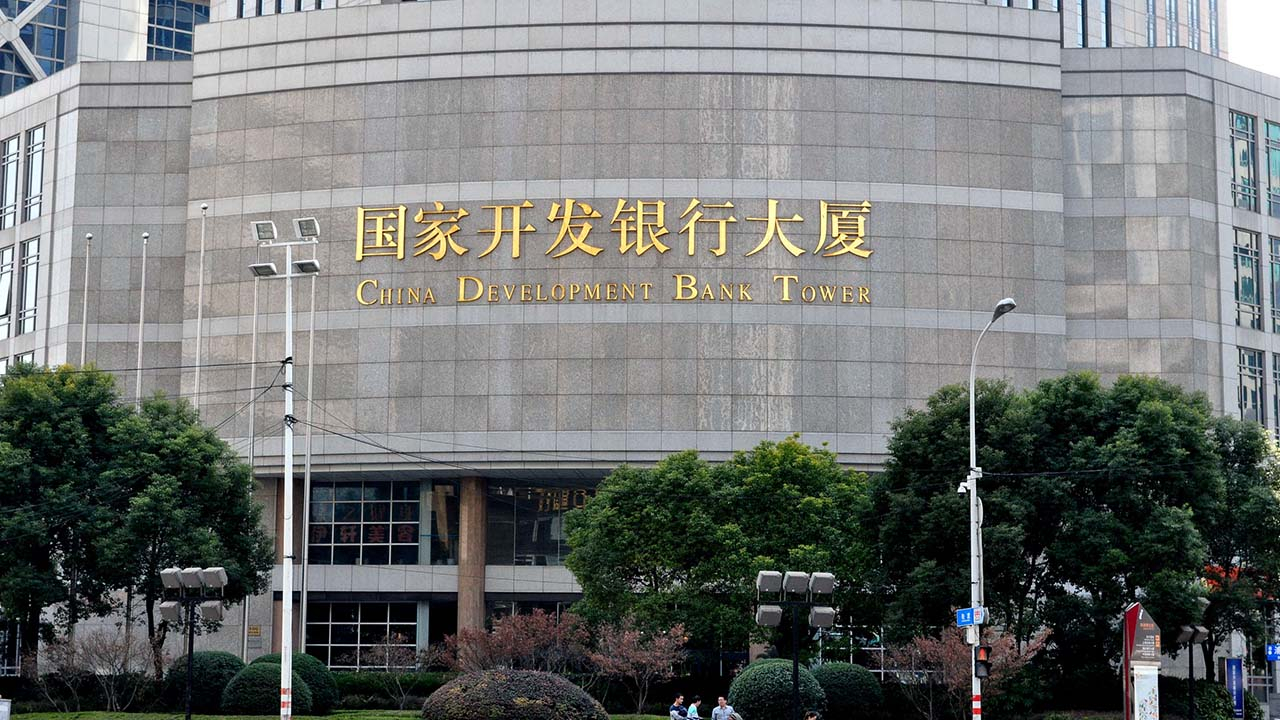
Business
12:05, 07-Jun-2018
CDB: International business to remain important
By CGTN’s Wei Lynn Tang
02:17

The China Development Bank (CDB) – with 2.4 trillion US dollars in assets under its books – is the largest Chinese bank for foreign investment and financing cooperation.
International loans account for 320 billion dollars – about 13 percent of its total assets, the bank says.
“International business will [continue to] be an important part for CDB because of China’s ‘Go Global’ strategy, and the Belt and Road Initiative will provide the potential for CDB to do more international business,” Vice Governor Zhang Xuguang told CGTN.
Zhang said the bank is not too perturbed by the ongoing trade tensions between China and the United States, citing China’s active role in managing financial and systemic risks.
“This is also why we have to strengthen cooperation with surrounding countries, to reduce market impact, that’s one of the main purposes of this interbank association,” he added.
CDB holds the chair of the Shanghai Cooperation Organization (SCO) Interbank Association (IBA) until October.
Since the establishment of the IBA in 2005, the CDB said it had extended over 100 billion dollars in loans to SCO member states.
Hu Huaibang, the bank’s chairman, said that in the past year, new achievements were made in supporting countries in the region – in energy, infrastructure, small and medium enterprises, as well as agriculture, with new credit agreements signed with the respective member banks.
“Another breakthrough is in admitting Pakistan’s Habib Bank Limited as a new SCO IBA member – the first such expansion [of membership] of the association,” Hu said.
“Going forward, we have to strengthen financing plans for bilateral-funded projects and the usage of (various) local currencies to facilitate trade and investment, as well as to innovate the modes of financing.”
Pakistan’s Habib Bank admitted as new member
Farhan Talib, head of corporate and investment banking at Habib Bank, said the inclusion of India and Pakistan as member states will see good cross-cultural integration.
“We have been working a lot with Chinese institutes and banks in the last three to four years since the introduction of China-Pakistan Economic Corridor,” he said. “We can bring this knowledge to the forum and help others work with Chinese institutions to put up infrastructure development projects.”
The first critical next step, Talib, is that there should be cooperation on a working level.
“We have a lot of guidance on the policy level from the chairmen of various banks, but on a working level we are proposing to form groups on trade finance or project finance and currency-related issues,” he said.
Talib noted that the working level impetus is extremely important, because “if that doesn’t happen, the bigger policy doesn’t go anywhere. So we have to translate into actionable items we have been pushing that as partner bank and now as a member bank.”
The next step looking ahead, according to Talib, is how member banks work on the currency issue – yuan development and convertibility, and the ability to use it as a trade currency between member countries.

SITEMAP
Copyright © 2018 CGTN. Beijing ICP prepared NO.16065310-3
Copyright © 2018 CGTN. Beijing ICP prepared NO.16065310-3